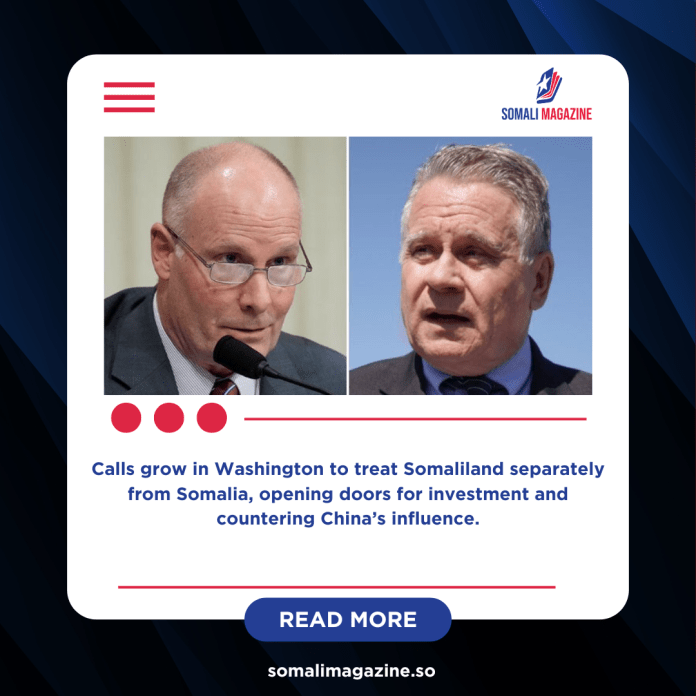Facebook Twitter (X) Instagram Somali Magazine - People's Magazine
Two senior U.S. lawmakers are calling on the State Department to issue a separate travel advisory for Somaliland, saying the current “Do Not Travel” warning for all of Somalia unfairly discourages engagement with the region. In a letter to Secretary of State Marco Rubio, Representatives Chris Smith of New Jersey and John Moolenaar of Michigan argued that Somaliland deserves different treatment because of its stability, democratic governance, and alignment with U.S. interests.
They said recognizing Somaliland separately would not only encourage American investment but also strengthen U.S. influence in the Horn of Africa at a time when China is expanding its footprint. Unlike southern Somalia, which struggles with terrorism and insecurity, Somaliland has long been seen as peaceful and self-governing. The lawmakers described it as a safe and prosperous society that has kept out piracy, smuggling, and extremist groups.
Smith and Moolenaar pointed out that the U.S. already treats Somaliland as distinct in some official policies, such as the 2023 National Defense Authorization Act. They believe the same approach should apply to travel guidance. According to them, the blanket advisory discourages visitors, businesses, and investors who might otherwise explore Somaliland’s opportunities, especially in critical resources like lithium and copper.
The letter also highlighted Somaliland’s partnerships with Taiwan in areas like healthcare, infrastructure, and maritime security, as well as growing ties with Israel through support for the Abraham Accords. The lawmakers noted that the U.S. International Development Finance Corporation has shown interest in working with Taiwan to finance energy and mineral projects in Somaliland, which could create more opportunities for collaboration.
They warned that keeping Somaliland under the same advisory as Somalia could play into China’s hands. Beijing has a military base in nearby Djibouti and has reportedly supported armed groups in the region, including supplying weapons and satellite imagery to Houthi rebels in Yemen. By treating Somaliland differently, they said, the U.S. would counter Chinese influence and show support for a partner aligned with Western values.
The lawmakers also pointed out that the State Department already provides region-specific travel guidance in other African countries such as Kenya, Ethiopia, and Cameroon. They argued there’s no reason not to apply the same approach to Somaliland, especially given its stability compared to the rest of Somalia.
Smith and Moolenaar welcomed recent U.S. steps to engage with Somaliland, including a visit to its capital Hargeisa by a delegation led by Ambassador Richard Riley and former AFRICOM commander General Michael Langley. They said they are ready to work with the State Department to expand this engagement further.
Calls for recognizing Somaliland have gained momentum among Republicans in recent months. Supporters argue that its democratic governance, long-standing autonomy, and pro-Western stance make it a natural partner for the U.S. in countering the influence of China and Iran. Some see Somaliland’s strategic coastline and mineral resources as key reasons for shifting away from Washington’s long-standing “One Somalia” policy. The push also ties in with ideas outlined in the Heritage Foundation’s “Project 2025,” which envisions deeper U.S. recognition of Somaliland under a future Republican administration.
For now, the State Department has not publicly responded to the lawmakers’ request, but the growing pressure shows that Somaliland is becoming an important point of debate in U.S. foreign policy.

